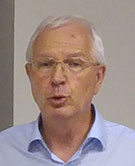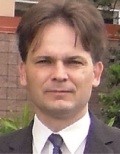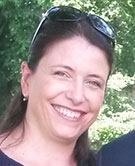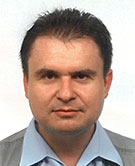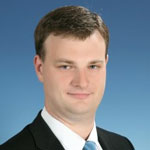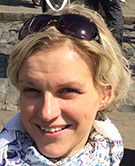Mensa workshop for gifted students – September 2016
In September 2016, a 5-day workshop took place for gifted students aged 13-19, aimed at improving their knowledge in the scientific and technical disciplines, as well as on the development of logical thinking, creativity, and motivation for further study of these specialties. Participants listened to expert lectures, undertook an excursion to the premises of VSB - Technical University Ostrava, where they were shown physics and nanotechnology laboratories and a supercomputer. They also visited the Landek Mine, and the Science and Technological Centre in Vítkovice. Of course, another valuable effect of the workshop was meeting students with a similar disposition, from all over the Czech Republic.
Date and venue
- Date: Thursday 5. 5. 2016 – Monday 9. 5. 2016
- Venue: Zbraslavice, Kutná Hora District
- Meeting point and date: 5. 5. 2016 at 10:05 at the Main Train Station in Kolin
- End: 9. 5. 2016 afternoon at the Main Train Station in Kolín
Programme
- The entire programme was focused on broadening students’ horizons in the fields of technical and scientific disciplines.
- For lectures, students were divided into two groups, according to age, to allow better targeting of the individual age groups.
- Alternatively, for team building activities and other programmes, groups were combined from participants of different ages to facilitate the forming of new friendships and the mutual exchange of experiences.
Selected lectures
|
|
Prof. Ing. Jiří Drahoš, DrSc., dr. h. c. Academy of Sciences of the Czech Republic What is chemical engineering, what are fractals good for, and why can chemical reactors behave chaotically? The point of the lecture was to show students that besides well-known chemical disciplines, there is a fascinating world of chemical engineering. It is a hybrid multidisciplinary specialization, utilizing, besides chemistry, also mathematics, physics, and lately, increasingly, biology. The complexity of behaviour of chemical reactors is illustrated using simple fractal approaches and strange (chaotic) attractors. The lecture contains no chemical formulas, just a couple of simple mathematical formulas here and there, and a lot of illustrative pictures. |
||
|
|
Ass. Prof. Ing. Radovan Soušek, Ph.D. Jan Perner’s Faculty of Transportation, Pardubice University, Faculty of Transportation, Czech Technical University in Prague
|
||
|
|
RNDr. Alena Drda Morávková, Ph.D., MBA Faculty of Science, Charles University in Prague
|
||
|
|
Ing. Martin Sedláček Mensa Czech Republic 3D print in practice |
||
|
|
Ing. Tomáš Blumenstein Mensa Czech Republic Home cryptography. This lecture gives information on basic cipher principles, and the audience can learn to create ciphers, as well as play a cipher game. Building a house. A broader view of the building industry demonstrated on the construction of a house – from the plot through to the project, construction method and construction materials, to interior installations. |
||
|
|
Mgr. Eva Staňková Mensa Czech Republic Specialized English. The lecture illustrates the differences among particular styles in both English and Czech, and principal challenges presented by the translation of a technical text when compared to the translation of an artistic text. |
Excursion into TPCA Factory- Toyota Peugeot Citroën Automobile
Programme:
- video – construction, production, and life in TPCA,
- tour of the shop floors on electric trains,
- finally, question time.
Participants’ feedback
From 5th to 9th May, a Mensa workshop for the gifted took place in Zbraslavice, near Kutná Hora. Sixty students aged twelve to eighteen participated in a series of lectures covering topics from biology to building an electron microscope. Students were divided into two groups, according to their ages, and lectures were adjusted according to the age group.
On the first day, we visited Kutná Hora, its historical centre, and the silver mines. This was followed by an evening lecture, where we were told a little about chemical reactors and fractals. On Friday, we listened to more lectures dealing with issues of organic chemistry, traffic, and transportation, as well as specialized English. Soon it was Saturday, and we hadn’t even realized that the workshop was halfway through. On that day, we printed pendants on a 3D printer, found out how to build a house properly, and finally, attempted to decode ciphers based on alphabet shifts and other interesting tricks.
Our everyday leisure time was spent according to individual preferences – we could have been in our rooms, outside on the pitch, or in the social room. Every evening, we played a team game where we collected points. After the last game, which was a devious outdoor cipher game, the Thálet team was declared the winners.
Let’s however go back to the programme. On Sunday, we had a lecture on NMR, electron microscopy, the evolution of viruses, and on cryptography, where we presented our ciphers to our colleagues. Before we knew it, it was Monday, which was connected with packing and the journey home. On our way home, we also visited the TPCA car factory.
Personally, I liked the workshop very much, and I can fully recommend it to anyone considering participation.
Jan Bohadlo (17 years)
Jirasek Grammar School, Náchod
At the beginning of May, I took part in the Mensa workshop for gifted students, which was organized in a marvellous way by Tomáš Blumenstein, Hana Kalusová, and Eva Staňková. The workshop was held in the Holiday and Sports Centre At the Old Pond in Zbraslavice, from 5th to 9th May. Workshop participants could gain new knowledge in many technical fields, as well as meet many great people.
On Thursday 5th May at around 10 a.m., after all of the participants had successfully arrived at the meeting point, i.e., Kolín Main Station, we split into two groups, one of which went to the Kutná Hora silver mines, and the other to the ossuary in Sedlc. Lunch followed, after which we swapped our destinations. After both groups had completed their programmes, we were transported to the above mentioned Holiday and Sports Centre At the Old Pond, where we were accommodated. The first lecture of the workshop followed, the topic of which was chemical engineering. After the lecture, we had dinner, and the last event of the day was a live “pairs game”, designed to get us acquainted with one another.
In the following days, we learned a lot of interesting information from many interesting people. We took a peek into the principles of biochemistry, virus evolution, 3D print basics, and found out about the methods a state can apply to solve crises, and what a crisis actually is. Besides these relatively specific issues, we also acquired practical knowledge, e.g., how to proceed with the construction of a house, and how to effectively translate Czech into English, and vice versa.
The entire workshop was livened up by “Home cryptography”, which consisted of small workshops in front of a table on which Tomáš projected various ciphers, which we more or less successfully attempted to decipher. We were also given advice on how to proceed with creating our own cipher, and were given an opportunity to create our own cipher, and to test it on other participants.
Other great activities included team games such as Millionaire and the cipher game, which were created by Filip Oplt, and which brought us a lot of fun with our teams.
On the last day, we had a very nice excursion to TPCA, where we saw the speedy car production. Many giant “robots” took part in the production, which was very interesting to me. We were also told about the basic principles of the organisation, and the cherry on the cake was a “high five” with a local worker. The excursion was followed by what was by far the worst point in the programme – the end. And so it happened that the Mensa workshop for gifted students ended at around 2PM at the train station in Kolín.
If I am allowed to bring my own feelings into this, I have to say that I really enjoyed the workshop, as is probably obvious from the text. I learned a lot of new, useful, and interesting things from many expert fields but, even more importantly, I met many really exceptional and great people.
Richard Veselý (16 yeras)
Budějovická Grammar School, Prague 4
Related topics
21.9.2016
Mensa workshop for gifted students – September 2016 20.9.2016 |
|||
|---|---|---|---|
 |
 |
 |
 |
 |
 |
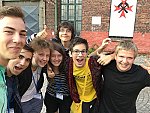 |
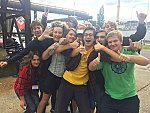 |
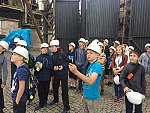 |
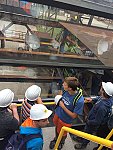 |
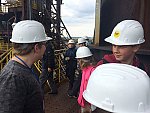 |
 |
 |
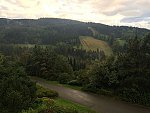 |
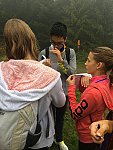 |
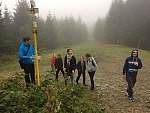 |
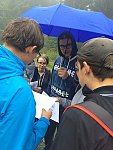 |
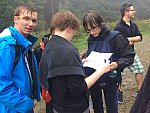 |
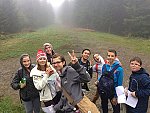 |
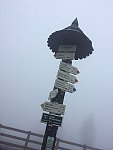 |
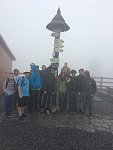 |
 |
 |
 |
 |
 |
 |
 |
 |
 |
 |
 |
 |
 |
 |
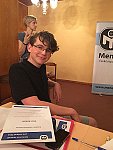 |
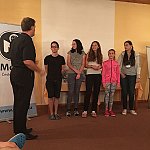 |
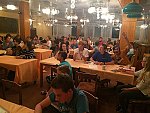 |
||

